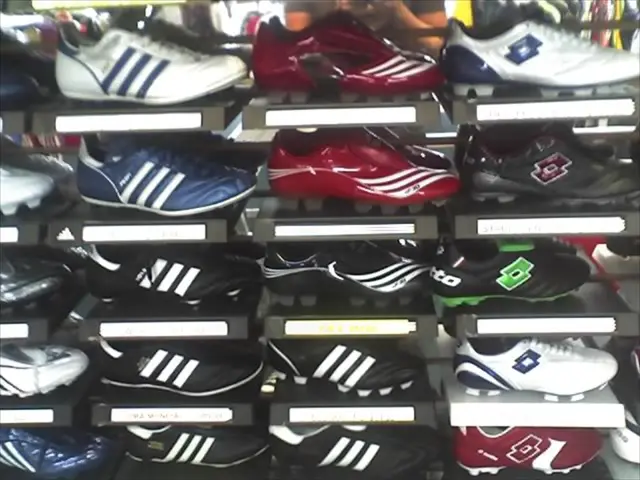Will Express Adapt to the Challenges of the Evolving Apparel Industry?
In the fast-paced world of retail, the iconic fashion brand Express finds itself grappling with stiff competition and shifting consumer preferences. Established way back in 1980, Express has been a crucial player in shaping and popularizing business casual apparel in malls. However, the pandemic era drastically changed the landscape, with casual attire and athleisure taking center stage, leaving Express in the dust.
Q2 earnings revealed a staggering 6.4% drop in net sales compared to the previous year, amounting to $435.3 million. Along with the decline in revenue, Express reported a massive loss of $44.1 million, a sharp contrast to the $7 million net income reported for the same period the year before. Inventory levels surged by 20%, while store comps plummeted by 21%, e-commerce dipped by 1%, and outlet store comps took a hit with a 17% fall.
To counter these setbacks, Express hastily accelerated cost-cutting measures and sought to achieve an ambitious annual savings target of $200 million by 2025. Furthermore, the company executed a reverse stock split, slashed 150 jobs by Q3, and even faced delisting from the New York Stock Exchange due to its struggling stock price.
The apparent lack of interest in Express's offerings has left industry experts such as Shawn Grain Carter, a retail consultant and professor at the Fashion Institute of Technology, warning of possible bankruptcy. In Carter's words, "The so-called momentum of this retail brand has lost its steam."
Express, stubbornly refusing to surrender, has opted for a change in leadership, appointing veteran retail executive Stewart Glendinning as the new CEO. Glendinning, formerly a group president at Tyson Foods, is expected to lead the company starting September 15th, following the resignation of Tim Baxter.
The crux of Express's challenges lies in the erosion of its brand awareness, which was once its hallmark. As Eric Beder, CEO and senior research analyst at Small Cap Consumer Research, eloquently put it, "At the most simplistic, you're competing against Walmart, Target, everyone else who sells camis, underwear, a pair of basic denim. You can't win with that."
Express is still up against a daunting task, trying to find the elusive balance between fashion and basics that can generate impressive returns while avoiding inventory problems. Achieving this balance is no easy feat, especially when juggling a diverse range of men's and women's apparel – a rarity among most specialty apparel retailers.
Express currently operates 530 retail and factory outlet stores, 60 Bonobos locations, and 11 UpWest stores, each with their own online stores. Despite having a vast store footprint, many potential customers, particularly those from younger generations, either lack knowledge or awareness of the Express brand.
To remain competitive, Express must focus on reinforcing its brand through effective marketing and product offerings that resonate with a broader audience. Moreover, the brand should invest in its online presence, catering to the preferences of tech-savvy younger customers who prefer shopping online over brick-and-mortar stores. Only time will tell if Express can muster the strength and creativity to reclaim its former glory.
- In the fast-paced world of retail, technology, and business, Express, a fashion brand established in 1980, is struggling with competition and shifting consumer preferences.
- Casual attire and athleisure have become popular, leaving traditional brands like Express in a challenging position.
- Q2 earnings revealed a 6.4% drop in net sales, amounting to $435.3 million, and a loss of $44.1 million compared to the previous year.
- Inventory levels surged by 20%, while store comps plummeted by 21%, e-commerce dipped by 1%, and outlet store comps took a hit with a 17% fall.
- To counter these setbacks, Express has accelerated cost-cutting measures and aims to achieve an annual savings target of $200 million by 2025.
- The company has also executed a reverse stock split, slashed 150 jobs by Q3, and faced delisting from the New York Stock Exchange.
- Industry experts predict possible bankruptcy for Express due to a lack of interest in its offerings.
- The new CEO, Stewart Glendinning, a veteran retail executive, will lead Express starting September 15th.
- The crux of Express's challenges lies in the erosion of its brand awareness, which was once its hallmark.
- Express is competing against big-box retailers and specializing in camis, underwear, and basic denim, making it hard to stand out.
- To remain competitive, Express must reinforced its brand through effective marketing, product offerings, and cater to younger customers who prefer shopping online.
- Express operates a vast store footprint, including retail stores, factory outlets, Bonobos locations, and UpWest stores.13.Many potential customers are unfamiliar with the Express brand, particularly younger generations.
- The fashion industry is expected to continue evolving, with AI, climate change, and political factors influencing the economy, markets, trade, and jobs in 2025 and beyond.







